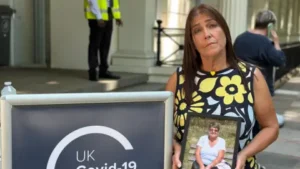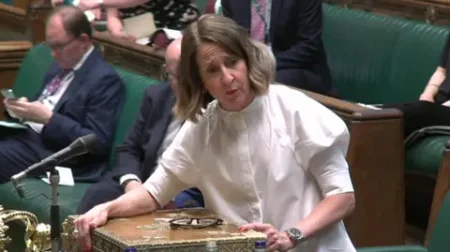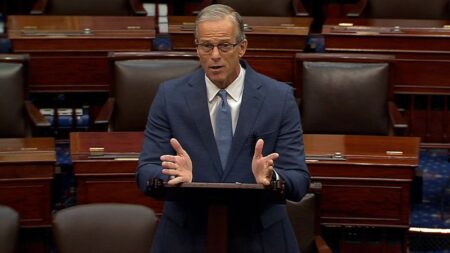The ongoing Covid inquiry has uncovered grave assertions regarding the treatment of elderly and vulnerable individuals within care homes during the initial stages of the pandemic. A notable statement made by senior civil servant Alasdair Donaldson accused the government of inflicting a “generational slaughter” on these vulnerable populations. This assertion resonated deeply with many families impacted by the pandemic, as emphasized by barrister Pete Weatherby, representing the campaign group Covid-19 Bereaved Families for Justice UK. Weatherby articulated that while Donaldson’s phrase may seem hyperbolic, it aptly encapsulates the widespread anguish shared among thousands of families.
The inquiry marks the commencement of its sixth segment, specifically focusing on the profound impact the pandemic had on care services, particularly for the elderly and those with disabilities. The necessity of addressing these traumatic experiences offers an opportunity for the government to learn valuable lessons from these harrowing times. The serious implications and tragic outcomes experienced within these facilities have prompted families to seek answers regarding the actions taken—or not taken—by health authorities during the early days of the crisis.
Evidence provided by Donaldson paints a stark picture of the “complete chaos” that engulfed the Department of Health and Social Care as the pandemic escalated in April 2020. His involvement coincided with a critical period, prompting Weatherby to advocate for Donaldson to provide oral testimony to the inquiry, underscoring the need for accountability and clarity regarding the government’s decisions and policies at the onset of the pandemic.
The statistics surrounding Covid-related deaths in care homes are staggering, with nearly 46,000 residents in England and Wales succumbing to the virus between March 2020 and January 2022. Many families express concern that the hasty discharge of hospital patients into care facilities in March 2020 exacerbated the spread of the virus, inadvertently allowing it to seep into such establishments during a vulnerable time. Moreover, there are questions revolving around the implementation of blanket “do not resuscitate” orders and restrictive visiting policies that barred families from seeing their loved ones for prolonged periods.
The emotional testimony from families who lost loved ones during this period has been profoundly impactful. Individuals such as Ann from Wales shared their harrowing experiences of being unable to comfort their dying relatives due to visiting limitations. Ann described her father’s confusion and despair during his final days, leading him to a state where he apparently wished for death. Julie from Yorkshire echoed similar sentiments, highlighting the traumatic experience of losing her mother alone, sedated and without family by her side, expressing that the pain from such memories will endure throughout her life.
The inquiry is not only focused on the bereaved families but also on the dire conditions faced by care workers, many of whom were already operating under precarious circumstances. Jacqueline Carey KC, the barrister overseeing the inquiry, underscored that this segment of the investigation aims to scrutinize various facets of care home operations, including understaffing challenges and the plight of care workers who often receive low wages. Personal protective equipment (PPE) shortages during the height of the pandemic are also critical points of investigation, as guidelines and resources were often insufficient, leading to heightened fears among frontline staff.
As the inquiry unfolds over five weeks, testimonies will be taken from bereaved families, care workers, providers, and health organizations, all contributing to a comprehensive understanding of the challenges faced within the care home system during a pivotal period in history. This inquiry not only seeks to illuminate past failures but aims to identify pathways for future improvement, ensuring that such a catastrophe does not recur. The emotional weight of these proceedings is palpable, reflecting both the grief of families and the urgent need for systemic reforms in care practices.











